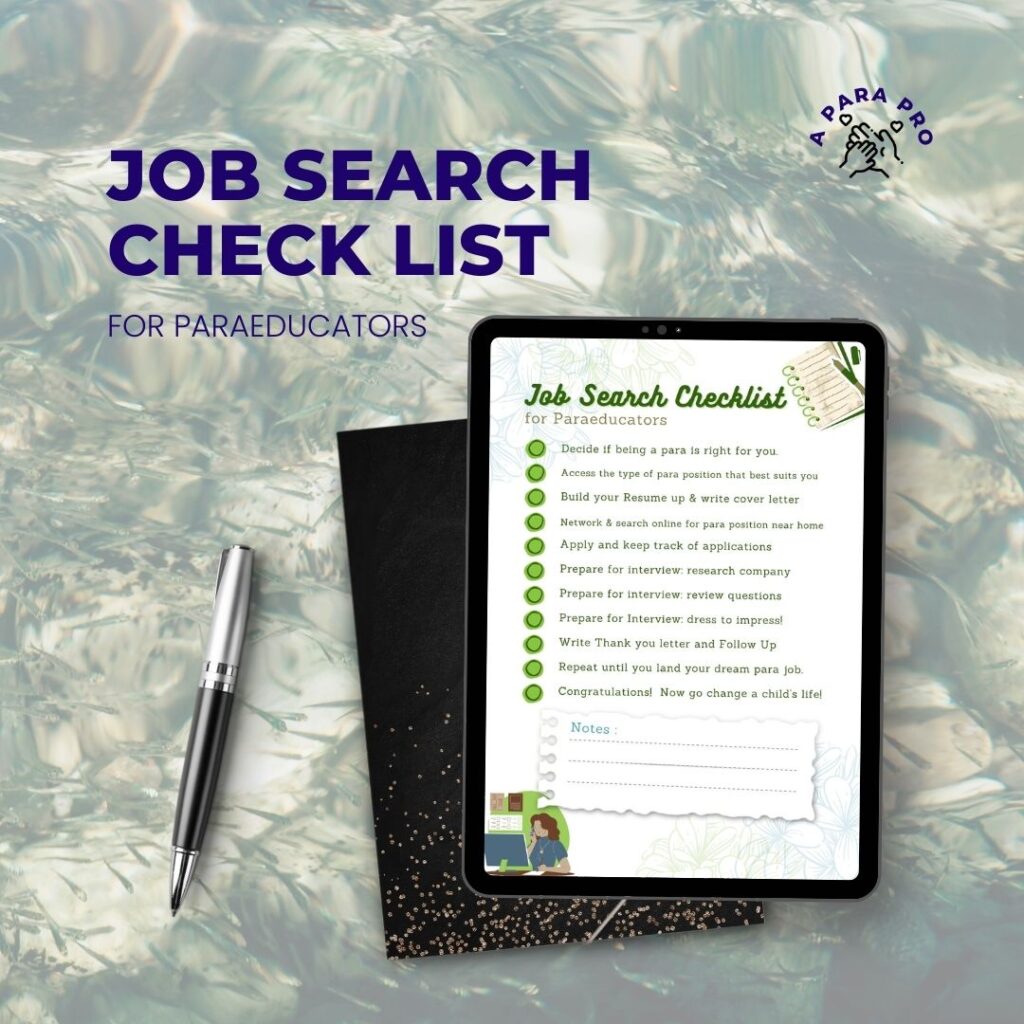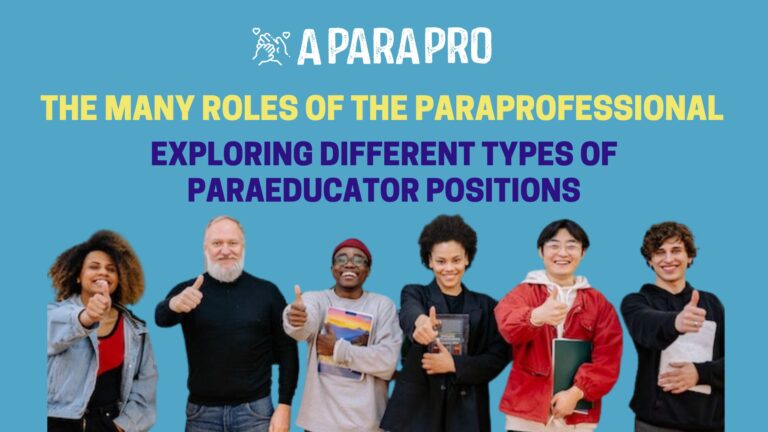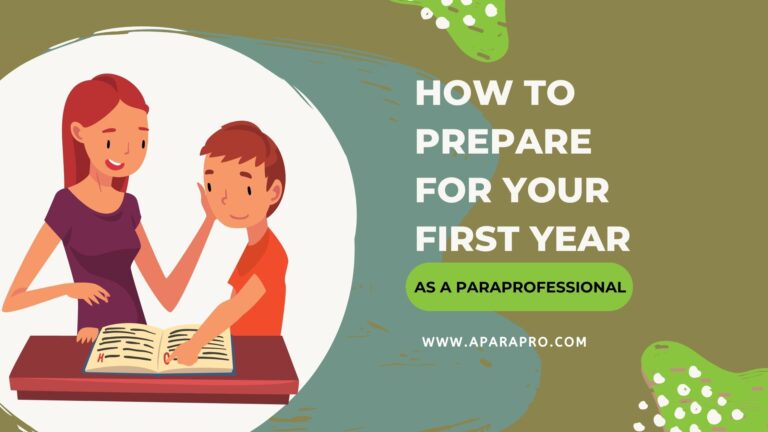How to get a Paraeducator Job in 7 Easy Steps
If you're looking to work with children, a paraeducator job can be a great option. To start, you'll need to know what a paraeducator is and how to go about finding one. As a former paraeducator, I know firsthand the daunting task of job searching and interviewing for para positions. This post will help walk you through the process of finding and applying for positions in your area.
What is a paraeducator?
Paraeducators are people who for the most part work with students with disabilities. They help students with physical, mental, and/or emotional disabilities in the classroom. As well as, provide support for both special education teachers and regular teachers. Paraeducators are also known as teacher's assistants (TAs).
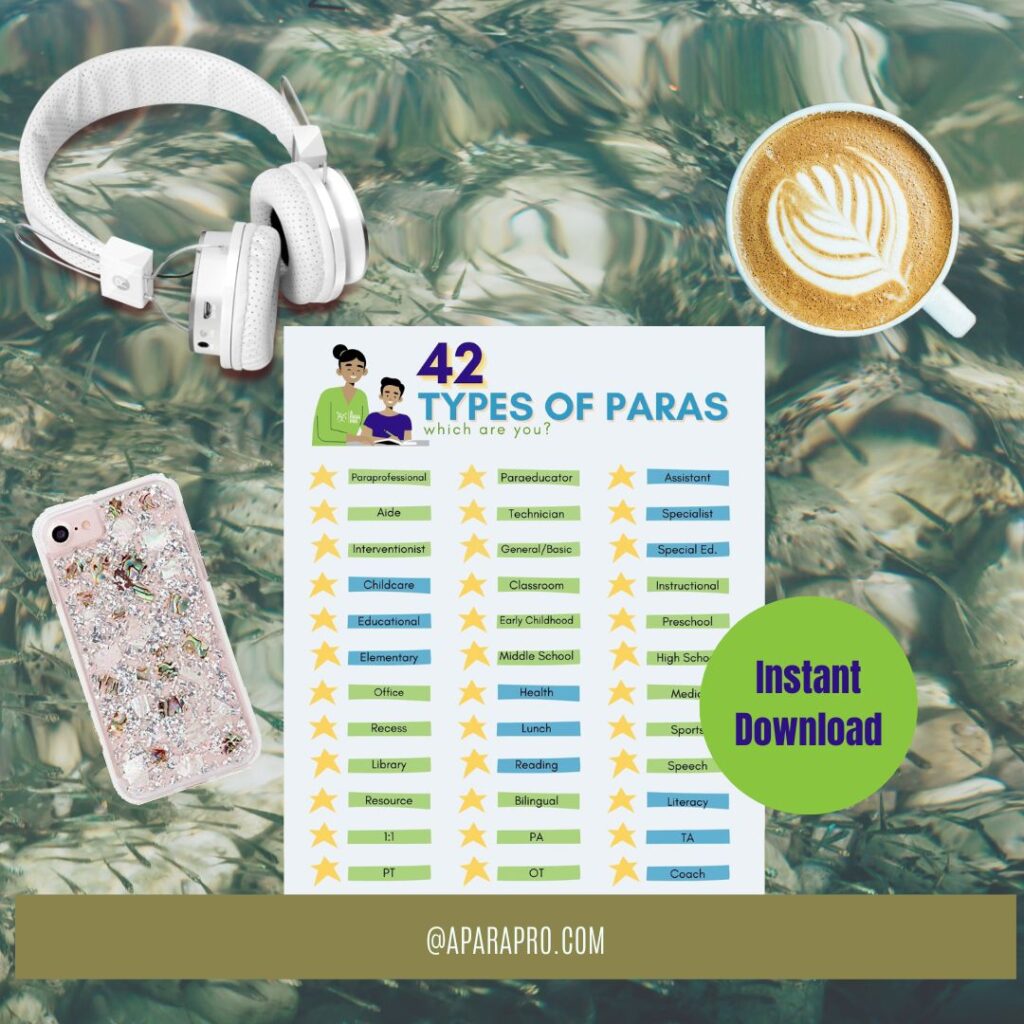
Paraeducators help teachers meet the needs of their students. For example, if a student has autism, then a TA would assist the teacher in planning lessons to meet the student's specific learning needs. A TA might also help organize materials for class or assist a young child in getting ready for school in the morning. Check out this beginner's guide for paraeducators to learn more about being a para or my essential handbook for paras.
Paraeducators must know their state's requirements, find job listings and apply for the positions they're interested in.
Paraeducator jobs are a great way to enter the teaching field. Paraeducators work alongside teachers, providing support in the classroom. They help with classroom management, instructional support, and other tasks that allow teachers to focus on their primary duties.
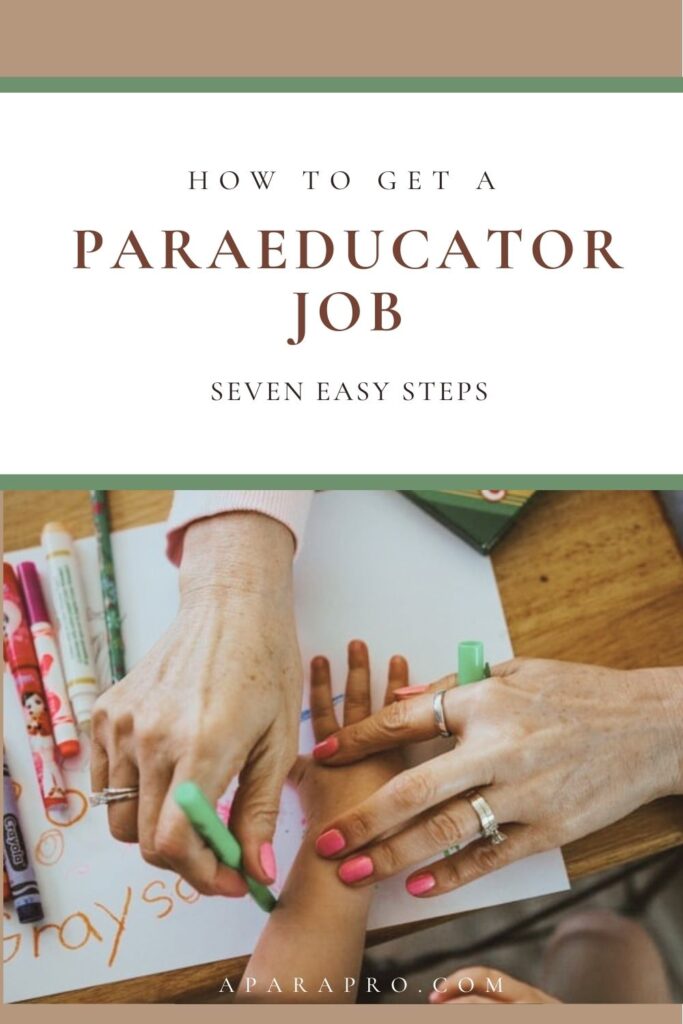
Although you may be required to have a teaching certificate for your state or district, paraeducators should know their state requirements before applying for paraprofessional positions. If you're interested in becoming a paraeducator for your local school system or charter school, check with your district about its hiring process (and its specific requirements). You can also search online job listings from various schools and organizations that hire paraeducators; many states require that they post all available positions publicly so potential employees can apply directly through their website.
1. Take a look at your state's requirements for paraeducator jobs.
State requirements for paraeducator jobs are different in each state. Some states require you to be certified, while others have no certification requirements. Other states require you to hold a degree or license, while other states don't have these requirements at all.
These licensing and certification requirements can be confusing. But they're important to know when applying for a job as a paraeducator.
To find out about your state's specific qualifications for paraeducators, check out the following resource:
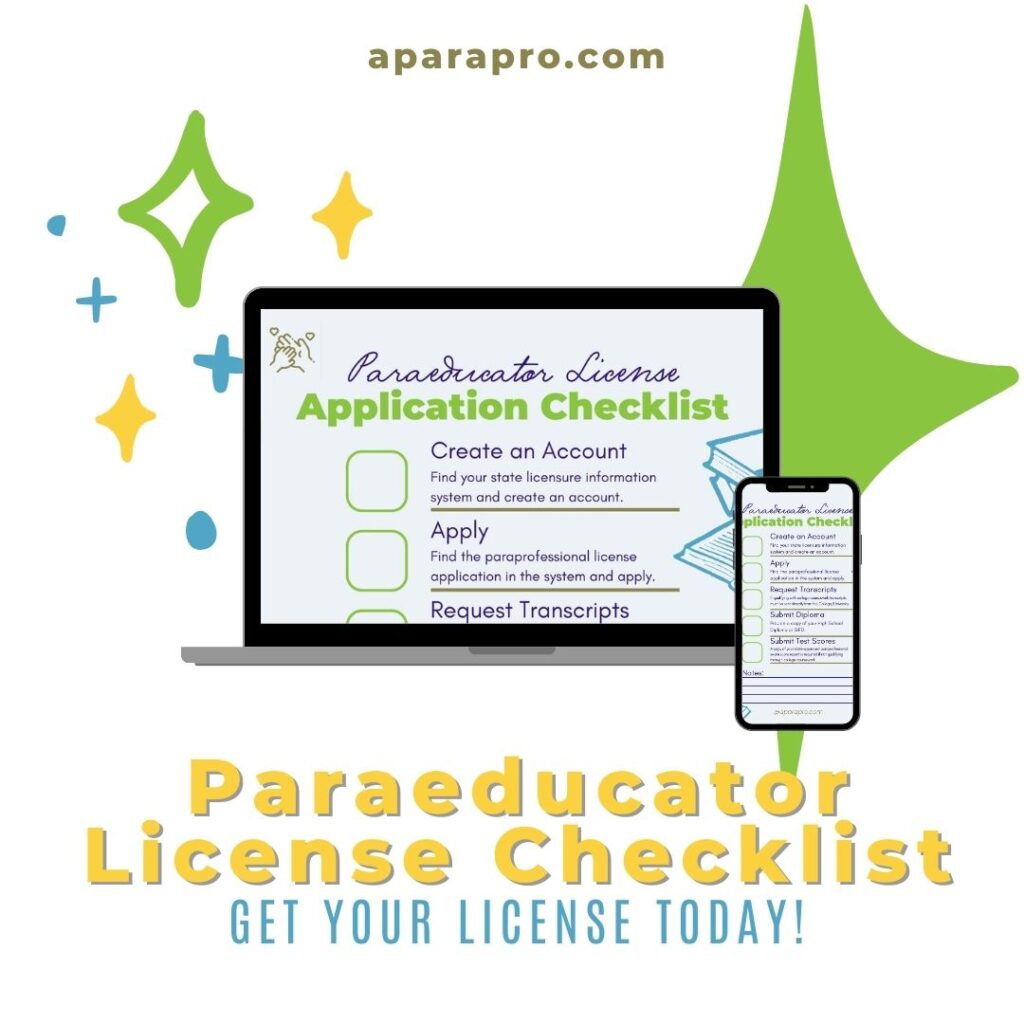
2. Consider earning a certificate or associate's degree.
If you're interested in becoming a paraeducator, it's important to know that most states require you to earn a certificate or associate's degree. You should also be prepared to take the basic skills test and complete some training programs.
If you're looking for more specific information on requirements in your state, check out this guide from the National Education Association (NEA). The website also offers resources on how to prepare for an interview and tips on applying for positions.
3. Find listings for paraeducator jobs in your region.
The best way to find a paraeducator job is to look for positions that are posted online. You can do this by searching:
- through job boards like Indeed and Monster
- looking at local listings on Neighborhood Groups or Apps and the local paper
- checking out your state's department of education website
- as well as browsing the local school district website in your area.
4. Create a paraeducator job application packet that includes your resume and cover letter.
You'll need to create an application packet that includes your resume and cover letter. Your resume should include your education, work experience, and skills. Your cover letter needs to explain your interest in the position and include a list of references. You may also want to include copies of your:
- transcript,
- certificate or degree,
- license,
- or other certifications if they apply to the position.
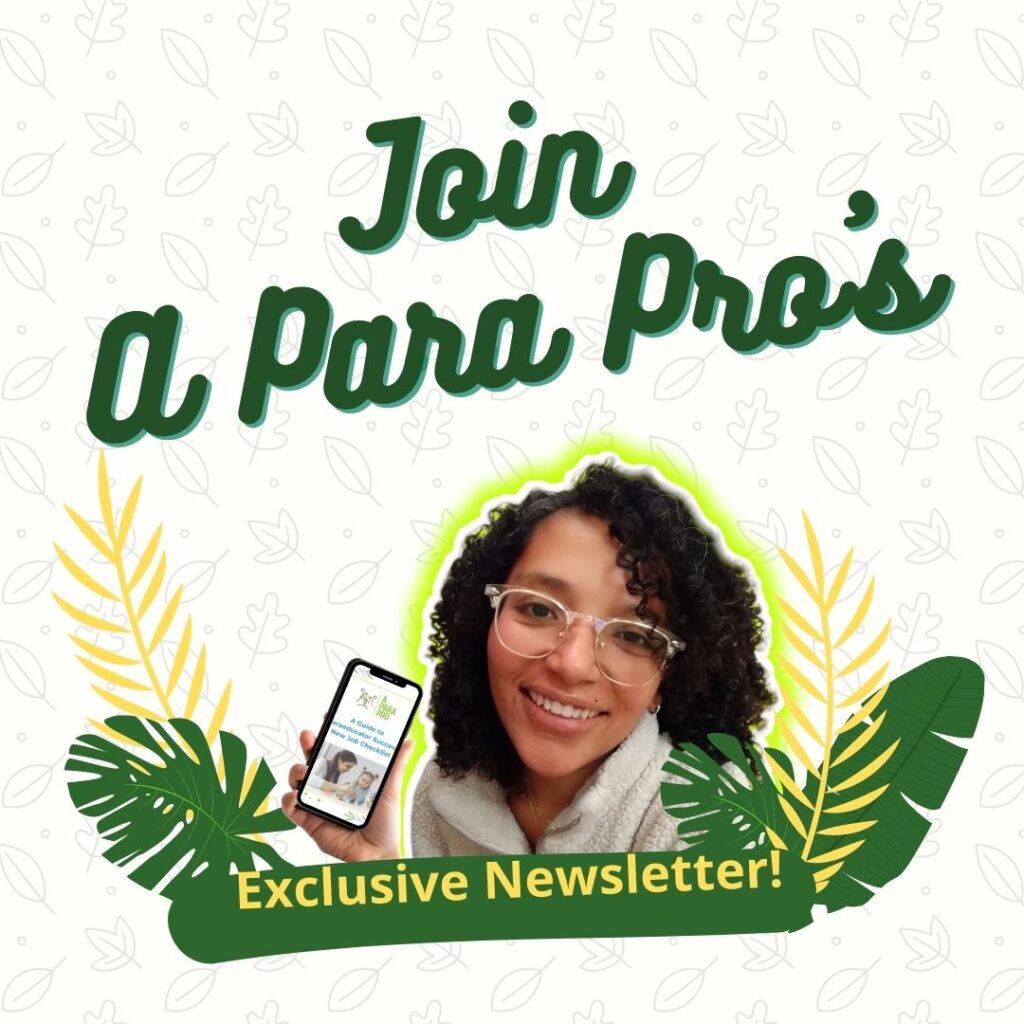
5. Prepare for the interview by brainstorming potential questions.
Prepare for the interview by brainstorming potential questions. Think about what kinds of questions you might be asked, and try to come up with examples that illustrate your skills, experience, and qualifications. When you do this, think about your personality, work ethic, and work style.
Prepare for the interview by thinking about what motivates you to do a good job. Think about how much time you spend at work, as well as other aspects of your life outside of work (school, family). Look at how others react to your dedication or lack thereof; if they are surprised that you are so enthusiastic about paraeducator jobs in general or specific paraeducator jobs, then it's probably safe to say that anyone evaluating their options would be impressed too!
6. Apply for the paraeducator job!
- Create a resume. You can use our template to create an effective resume, or a quick Google search will turn up plenty of options for you to choose from.
- Write a cover letter. A cover letter is similar to the summary on your resume, but it's more long-form and should include why you're interested in this particular job and what skills you have that would make you a good fit for it. Writing one won't take too much time if you just take some time beforehand to think about what they're looking for in their ideal candidate and how your experience fits with those things (hint: read the job description!).
- Prepare for the interview! You'll want to review everything they ask about during interviews so that when they ask questions like “What do you know about this organization?” or “Which skills would be useful here?”, no surprises are waiting! If possible, prepare some sample questions of your own so that if something comes up during the interview which isn't covered anywhere else (like asking how many hours per week someone works), then there's one less thing left unsaid between yourself and them before making any final decisions about whether or not hiring you would be beneficial for everyone involved.
7. Don't Forget to Follow Up
Many individuals forget to follow up after an interview when applying for a job, but it's a crucial step.
In fact, merely properly following up after an interview could be the deciding factor in whether you land the job. In general, it's crucial to inquire how you should follow up before an interview ends.
Always remember to act with courtesy, grace, positivity, and amiability. If you make a good impression on the individuals you meet, they might introduce you to a better opportunity in the future, even if you don't wind up receiving this particular opportunity. A surefire approach to creating a good impression on people who can change your life is to follow up with them after an interview.
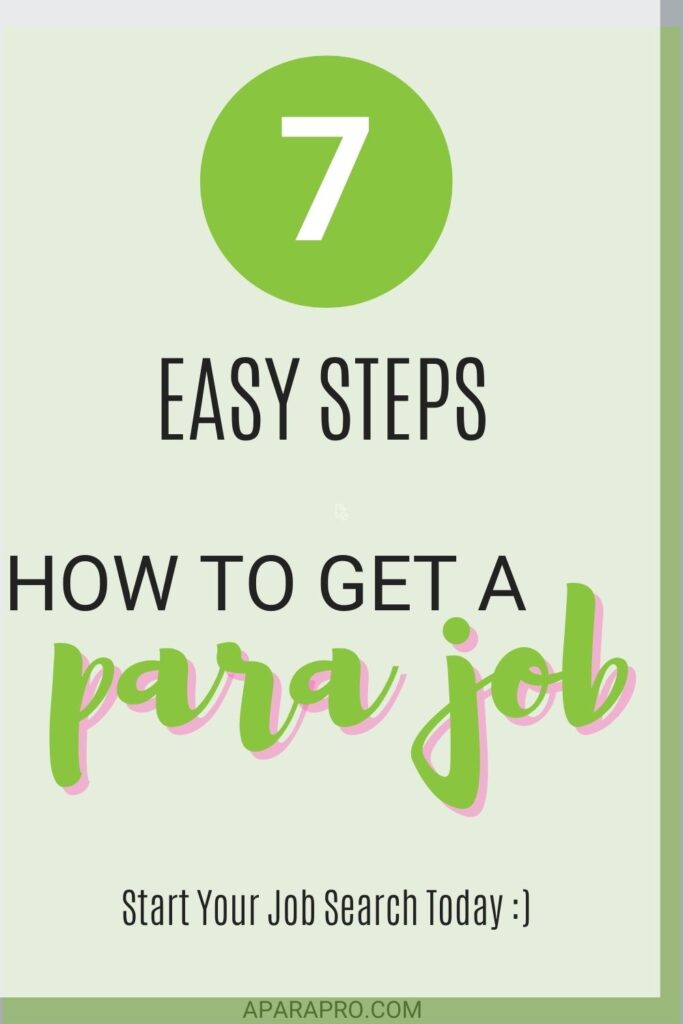
After you get hired, start preparing for the expectations of your first day in your new para job.
One Last Thing About Paraeducator Jobs
Paraeducators are an important part of the education system and every state across the country needs them. If you're considering a job as a paraeducator, there are many resources available to help you start. You can find job listings for paraeducator positions in your region and then prepare for the interview by brainstorming potential questions. Once you've found an open position that matches your experience level and interests, apply!
Please let me know when you land your paraeducator job, to your success!
